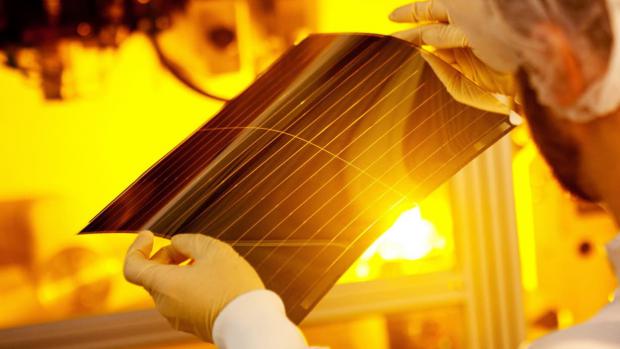
Breaking News
 Outrage Erupts as Released MS-13 Gang Member Kilmar Abrego Garcia...
Outrage Erupts as Released MS-13 Gang Member Kilmar Abrego Garcia...
 The backbone of U.S. capital markets just got the green light to move $100 trillion onchain
The backbone of U.S. capital markets just got the green light to move $100 trillion onchain
 SILVER IS ENTERING A "GENERATIONAL" SQUEEZE.
SILVER IS ENTERING A "GENERATIONAL" SQUEEZE.
Top Tech News
 EngineAI T800: Born to Disrupt! #EngineAI #robotics #newtechnology #newproduct
EngineAI T800: Born to Disrupt! #EngineAI #robotics #newtechnology #newproduct
 This Silicon Anode Breakthrough Could Mark A Turning Point For EV Batteries [Update]
This Silicon Anode Breakthrough Could Mark A Turning Point For EV Batteries [Update]
 Travel gadget promises to dry and iron your clothes – totally hands-free
Travel gadget promises to dry and iron your clothes – totally hands-free
 Perfect Aircrete, Kitchen Ingredients.
Perfect Aircrete, Kitchen Ingredients.
 Futuristic pixel-raising display lets you feel what's onscreen
Futuristic pixel-raising display lets you feel what's onscreen
 Cutting-Edge Facility Generates Pure Water and Hydrogen Fuel from Seawater for Mere Pennies
Cutting-Edge Facility Generates Pure Water and Hydrogen Fuel from Seawater for Mere Pennies
 This tiny dev board is packed with features for ambitious makers
This tiny dev board is packed with features for ambitious makers
 Scientists Discover Gel to Regrow Tooth Enamel
Scientists Discover Gel to Regrow Tooth Enamel
 Vitamin C and Dandelion Root Killing Cancer Cells -- as Former CDC Director Calls for COVID-19...
Vitamin C and Dandelion Root Killing Cancer Cells -- as Former CDC Director Calls for COVID-19...
 Galactic Brain: US firm plans space-based data centers, power grid to challenge China
Galactic Brain: US firm plans space-based data centers, power grid to challenge China
Heliatek claims new conversion efficiency record for organic PV cells

In 2012 it claimed a then world record 10.7 percent conversion efficiency and said it was gunning for 15 percent in the near future. This week it announced it's halfway there, achieving a new record of 13.2 percent.
Heliatek says its R&D teams achieved the new record using a multi-junction cell and that the measurement was independently confirmed by Fraunhofer CSP's solar testing facility. While traditional silicon cells have achieved higher levels of conversion efficiency, organic cells are also pursued because they can be produced more cheaply and are also more flexible.
In fact, the firm claims that "the excellent low light and high temperature behavior of the organic semiconductor" in the new cells makes them equivalent to the electricity generation capability of conventional solar cells with 16-17 percent efficiency under real world conditions.
"This success is based on our chemical research for new organic absorber materials," said Heliatek's Dr. Martin Pfeiffer.

 This is not a bubble.
This is not a bubble.


